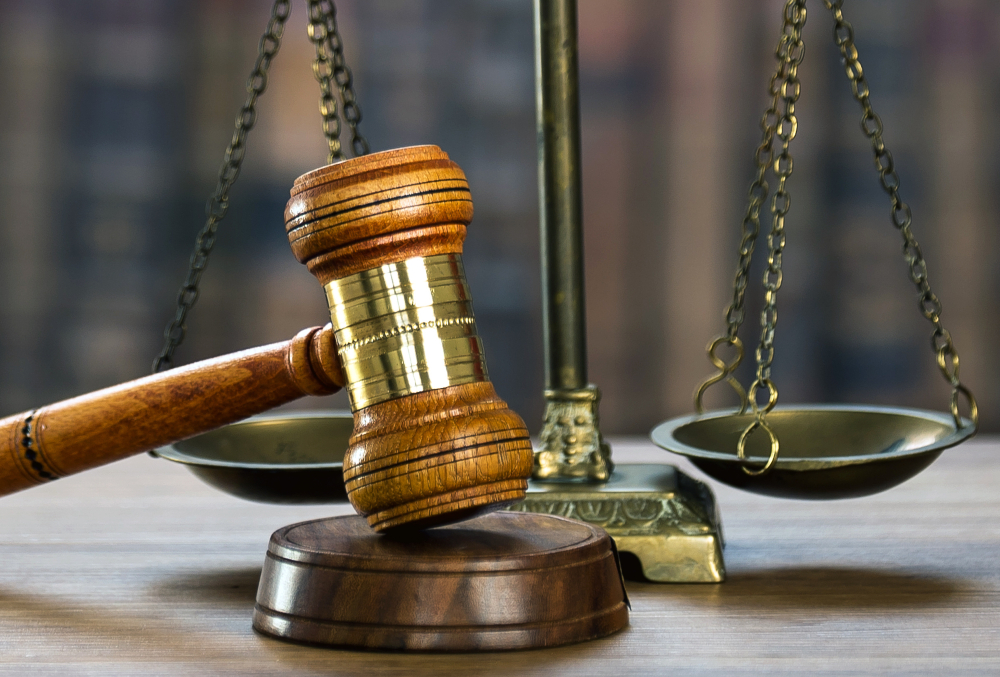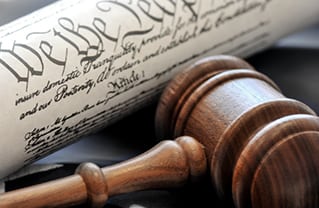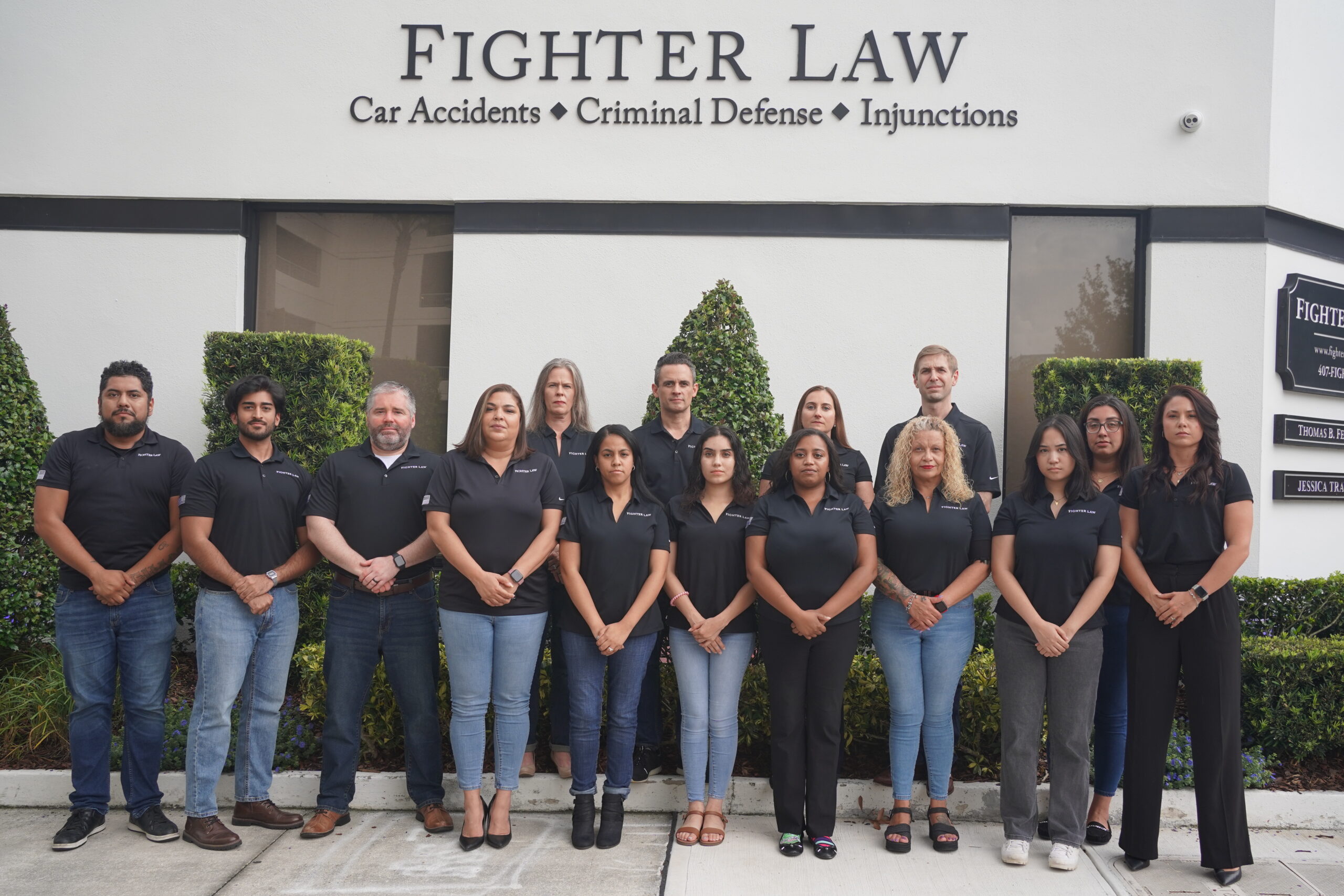Domestic Violence Lawyer
The best advice anyone can give you is to get the best domestic violence lawyer that you can afford.
Arrested for domestic violence? Being investigated for domestic violence? Don’t talk to the police and call a lawyer right away. The police are not your friends. Your only friend is your lawyer – your domestic violence lawyer!
When the police are called due to a domestic violence allegation, they almost always arrest the accused person. It is important that you do not give a statement to the police or anyone else until you have contacted a lawyer.
We have a unique understanding of how these cases are prosecuted, which helps us develop the best defenses available for clients facing domestic violence charges.
Contact us online or call us in Orlando at 407-344-4837 for a free consultation. We would be honored to fight for you.
If you are the victim of domestic violence, we also may be able to help. Domestic violence is serious and help can be found in a private law firm like us, your local state attorney’s office or The National Domestic Violence Hotline. You can also educate yourself on sites like Psychology Today.
Understanding Florida Domestic Violence Laws
Florida takes domestic violence allegations extremely seriously, with strict laws designed to protect victims and prosecute offenders. Under Florida Statute 741.28, domestic violence is defined as any assault, aggravated assault, battery, aggravated battery, sexual assault, sexual battery, stalking, aggravated stalking, kidnapping, false imprisonment, or any criminal offense resulting in physical injury or death of one family or household member by another family or household member.
The state recognizes several relationships that qualify under domestic violence statutes, including spouses, former spouses, individuals related by blood or marriage, individuals who are presently residing together as if a family, individuals who have resided together in the past as if a family, and individuals who are parents of a child in common regardless of whether they have been married. Understanding these definitions is crucial because they determine how your case will be prosecuted and what penalties you may face.
What is Mutual Combat?
Mutual combat is a recognized defense to the crime of battery. It is basically where two people “consent” to getting in a fight to see who wins. The loser (often times the one who started the fight) will sometimes call the police and cry victim. When that happens, it is very important to have witnesses who can testify as to what happened. If it’s just the two of you who got into the fight, it’s not so easy. Sometimes it is a race to the phone. Whoever calls the police has the advantage. Many attorneys would consider this an abuse of process when someone starts a fight, gets their butt kicked, and then calls the police claiming to be a victim. If you find yourself in this situation, you may have an uphill battle. But there are ways to defend against that. Some of the important things you will want to get or preserve are:
- Video evidence if there is any;
- Witness names and contact information; and
- Any physical evidence of the fight.
If you are in a fight that someone else started and you win, this is what I recommend. Make a video on your cell phone! Record yourself immediately after the fight explaining what just happened, saying that you were just attacked by a little punk and that you defended yourself. If you are later confronted by the police, you can show them the video. They will probably ask you, “Why didn’t you call the police?” You can then reply because it was a fight, I defended myself and I won, and I didn’t think I needed to call the police. You guys have more important things to do and I didn’t want to waste your time or the government’s resources on that little punk because he picked a fight with me.
The police will probably respect that, look at your video which will back up your story, and believe you! When they go to the other guy to see if he has video, he probably won’t have any video or a good answer like you do, which will give you the upper hand.
Look, it may be safest to call the police if you get into a fight that you don’t start, regardless of how it turns out. But most people don’t want to have voluntary contact with the police because people don’t trust the police! And they don’t want to risk getting arrested. If nothing else, you can just call 911 or the non-emergency recorded line for the local police and “beat” the other guy to the phone. At least create a record that you called first and that YOU really are the victim – even if you won the fight.
I was angry with my partner and lied to the police, what now?
First, falsifying a police report is a crime and for that reason it is suggested that you talk to a domestic violence lawyer before doing anything else. It’s usually free after all!
While domestic violence is a serious matter, there are many cases in which a couple may have gotten lost in the heat of the argument and the police were called. Angry at your partner, you made a false claim against them, and lied to the police. Now your partner is facing domestic violence charges and the following may occur:
- he/she lost their job
- he/she now has a criminal record
- you most likely will need bail money
- you should hire a criminal defense attorney
- you will likely have to go out of pocket thousands of dollars
How do I get domestic violence charges dropped?
- sign a declination of prosecution
- contact a criminal defense attorney
- consider hiring your own attorney
The Consequences of a Domestic Violence Conviction
A domestic violence conviction in Florida carries severe and long-lasting consequences that extend far beyond criminal penalties. If convicted, you may face mandatory jail time, substantial fines, mandatory completion of a 26-week Batterer’s Intervention Program, probation, and court costs. Additionally, you may be prohibited from possessing firearms or ammunition, which can impact your career if you work in law enforcement, security, or the military.
The collateral consequences can be even more devastating. A domestic violence conviction becomes part of your permanent criminal record, potentially affecting your ability to find employment, secure housing, or obtain professional licenses. In family law matters, a domestic violence conviction can significantly impact child custody arrangements, with courts often viewing domestic violence as a factor against awarding custody or unsupervised visitation. Immigration consequences are also severe, as domestic violence convictions can lead to deportation for non-citizens and may prevent you from becoming a U.S. citizen.
What to Expect During the Legal Process
The domestic violence legal process in Central Florida typically begins with an arrest, often followed by the issuance of a no-contact order or injunction for protection. Your first court appearance, called an arraignment, usually occurs within 24 hours of arrest if you remain in custody. During this hearing, you’ll enter a plea, and bond conditions may be set or modified.
The discovery phase follows, where we obtain all evidence against you, including police reports, witness statements, photographs, medical records, and any audio or video recordings. We also conduct our own investigation, interviewing witnesses, visiting the scene, and gathering evidence that supports your defense. Pre-trial motions may be filed to suppress evidence, dismiss charges, or limit what evidence can be presented at trial. Throughout this process, we engage in negotiations with the prosecution, seeking reduced charges, alternative sentencing options, or case dismissal. If a favorable resolution cannot be reached, we are prepared to take your case to trial, where our Board-Certified Criminal Trial Law credentials provide you with the highest level of representation.
Domestic Violence Charges
Domestic violence involves an act or accusation of violence against a person’s spouse, girlfriend or boyfriend, or someone in the same household. In Florida, there are two main types of domestic violence charges:
-
Battery: Battery is typically a first-degree misdemeanor resulting from an accusation of non-consensual contact with a person or intentionally causing bodily harm to a person. The charge can stem from a minor incident such as grabbing a person’s arm.
-
Strangulation: Strangulation is a felony charge resulting from an accusation of choking or attempting to choke a person using hands.
A domestic violence arrest can often result in an injunction (restraining order). Even if your spouse or significant other wishes to drop the charges, the prosecution may still fight hard against you. At Fighter Law, we are domestic violence lawyers and we understand how extremely inconvenient and upsetting a domestic violence arrest is, as well as the intensive and costly Batterers Intervention Program (BIP) that is mandatory for many people convicted of domestic violence charges.
We know that your family and freedom are important to you, even if you are going through a divorce or other family law matter. We will negotiate with the prosecutors and aggressively work to have your charges reduced or dismissed. Don’t let a domestic violence charge affect your job, your custody of your children and other important areas of your life.
Common Defenses in Domestic Violence Cases
At Fighter Law, we employ numerous defense strategies tailored to the specific facts of each case. Self-defense is one of the most common and effective defenses, particularly when our client was protecting themselves from an aggressor. Florida’s “Stand Your Ground” law allows individuals to use reasonable force to defend themselves when they reasonably believe it is necessary to prevent imminent death, great bodily harm, or the commission of a forcible felony.
False accusations are unfortunately common in domestic violence cases, often arising from bitter divorces, custody disputes, or revenge motives. We thoroughly investigate the alleged victim’s credibility, motivation for making accusations, and any history of false claims. Lack of evidence is another powerful defense, as the prosecution must prove guilt beyond a reasonable doubt. We challenge weak evidence, including inconsistent witness statements, lack of physical evidence, and unreliable police reports. In cases involving mutual combat or where our client was the actual victim, we work to demonstrate that our client was wrongfully arrested due to law enforcement’s failure to properly investigate the incident.
How Domestic Violence Injunctions Affect Your Case
A domestic violence injunction, commonly known as a restraining order, is often issued immediately following a domestic violence arrest and can significantly complicate your criminal case. In Florida, there are two types of injunctions that may be relevant to your situation: a temporary injunction, which can be issued without your presence based solely on the alleged victim’s petition, and a permanent injunction, which requires a full hearing where you have the right to be represented and present evidence.
The impact of an injunction extends far beyond the criminal charges you’re facing. Violating an injunction is a separate criminal offense that can result in additional charges, even for seemingly innocent contact like sending a text message or showing up at a location where the protected person happens to be. These violations can be charged as misdemeanors or felonies, depending on the circumstances, and can carry significant jail time. Additionally, injunctions become part of the public record and can affect your employment, professional licenses, and ability to possess firearms.
At Fighter Law, we understand the intricate relationship between criminal domestic violence charges and civil injunction proceedings. Thomas Fighter and Jessica Travis have extensive experience defending against both criminal charges and the injunction petition simultaneously. We work to protect your rights in both proceedings, as the outcome of one can significantly impact the other. Our strategy often includes challenging the legal basis for the injunction, presenting evidence that contradicts the alleged victim’s claims, and negotiating modifications that allow you to maintain contact with your children or continue working if your job requires you to be in certain locations. We also help clients understand the long-term implications of consenting to an injunction and work to minimize the impact on their personal and professional lives.
Why Choose Fighter Law for Your Domestic Violence Defense
Thomas Fighter and Jessica Travis bring a unique combination of prosecutorial experience and board-certified trial credentials to every domestic violence case. As former prosecutors, they understand how the state builds these cases and can anticipate prosecution strategies while identifying weaknesses in the evidence. Their board certification in Criminal Trial Law by the Florida Bar represents the gold standard for criminal defense attorneys in Florida, ensuring you receive the highest level of legal representation.
Our male-female attorney team provides a distinct advantage in domestic violence cases, offering different perspectives and allowing clients to work with the attorney with whom they feel most comfortable discussing sensitive matters. We understand the emotional toll these charges take on families and work diligently to minimize the impact on your personal and professional life. Our approach includes building strong relationships with local prosecutors, judges, and court personnel, which often leads to more favorable outcomes for our clients. We also provide comprehensive support beyond legal representation, connecting clients with resources such as counseling services, anger management programs, and other community resources that may benefit their case and personal growth.
Offering Free Consultations
For strong advocacy and protection of your rights in central Florida, hire an Orlando domestic violence lawyer at the earliest possible stage. Call us at 407-574-7576 or send us an e-mail, and we will respond shortly.









